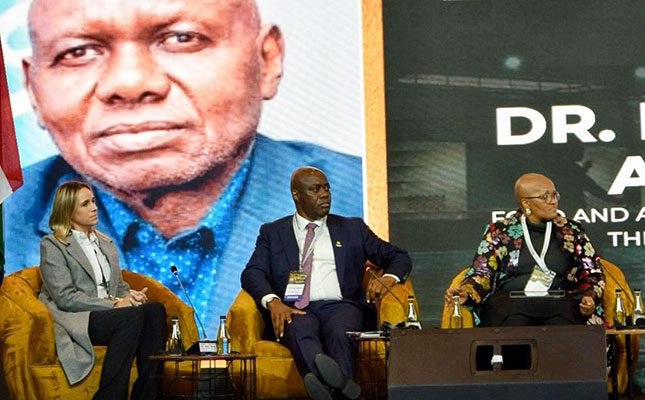
Speakers noted the greater challenges Africa would face in maintaining food security compared to other regions. While most of the world would see both rising temperatures and rainfall, Southern Africa was due to become hotter and drier. This will have a significant impact on food production.
Dr Yolandi Ernst, a researcher at the Global Change Institute, said that South Africa and Botswana are at risk of extreme heat, with Southern Africa warming at twice the global rate.
“Rainfall will become infrequent and difficult to predict, with more frequent and longer-lasting droughts. The impact of such weather was evident during the most recent drought when three countries in Southern Africa had to declare a state of emergency when crops were decimated.”
She added that she didn’t believe that farmers realised just how extreme the climate changes would be and how much it would affect them.
Phelisa Nkomo, a development economist and gender equity advocate, said that climate change would most certainly undermine food security in Africa.
“We are already seeing, and will continue to see, volatility in yields, which will lead to higher food prices, and food insecurity as a result. The volatility also means that crop insurance will become more expensive, and likely unaffordable.”
Ernst however noted that there were mitigation strategies that the industry could employ. There was, however, a greater need to region-specific research and climate models on which to base these strategies.
“Many global models don’t fit Africa. We need Africa specific data and research. The models need to be calibrated for our climate so that we have region specific solutions that are fit for purpose.”
The critical interventions that farmers would need to implement included climate smart agriculture technologies, climate neutral practices, and investment in solutions for water reuse.
Nkomo also pointed to critically needed interventions to reduce food waste by developing proper storage infrastructure.
Get trusted farming news from Farmers Weekly in Google Top Stories.
➕ Add Farmers Weekly to Google ✔ Takes 10 seconds · ✔ Remove anytime






